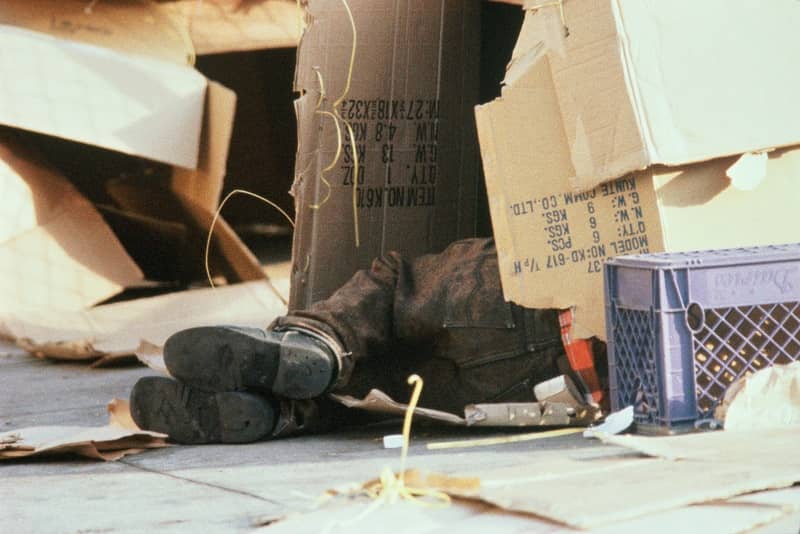

Summary
John Stossel’s recent TV special, “Stupid in America” energized the debate about what’s wrong with our public school system. European kids do better than Americans on standardized tests because they have school choice and we don’t. Teachers unions are a big part of the problem. Oregonians must choose between putting more money into the same school monopolies, or more school choice.
Word count: 769
It’s not often that a television show changes the terms of the debate on some important public policy. But that could be the case if enough people watched ABC newsman John Stossel’s TV Special “Stupid in America” on January 13th.
Stossel calls himself the ABC News in-house contrarian, and he solidified that claim with the way he exposed America’s public school monopoly for what it is — an expensive, union-controlled failure.
The show made its points primarily though the words of students and teachers. After giving the same tests to American and Belgian kids, Stossel showed how shocked the highest-scoring American student was when he found out that the Belgians did so much better. The Belgian students thought the tests were so easy that the American kids must be stupid to have done so poorly. The main point of this exercise was that Belgians have school choice and Americans don’t. Their schools are better than ours because of the competition.
The teachers union officials who appeared on the show were having none of Stossel’s “competition makes schools better” argument. To them, the union is the be-all and end-all of the public education system. Taxpayers can’t spend too much to provide union members with good salaries, benefits and job security.
Of course, those union leaders were from New York City, not pastoral Oregon. Things are different here, right? Well, not really. Just last month a teachers union spokesperson testified before an Oregon legislative committee that the union wants taxpayers to give schools over one billion dollars more per biennium to meet Quality Education Model goals. I testified later that lawmakers shouldn’t be surprised if any additional money they allocate to education doesn’t reach the kids, because “there are powerful special interest groups standing between the kids and the money, and their understandable goal is to capture as much of any additional funding as they can.”
Stossel went on with example after example showing how our public school system is failing many of its students. The state of Florida tried to address this failure, but the Florida Supreme Court recently threw out the state’s Opportunity Scholarship program, which allowed kids in failing public schools to attend other public or private schools of their choice. The Court ruled that such a choice violated the state constitution’s “uniformity clause” by allowing students to attend schools that weren’t just like the ones they left. The result of this decision will be to force children to return to the very public schools the state already determined had failed them. If you think things are different in Oregon, remember that we have a “uniformity clause” in our constitution as well.
Stossel interviewed the former teacher who brought the Florida suit. When asked why she didn’t think competition would make things better for kids, here’s what she said: “Competition is not for children, it’s not for human beings, it’s not for public education. It never has been and it never will be.” This is the face of public education today.
Our public school systems now spend twice the dollars per pupil, adjusted for inflation, as they did in the 1970s. They spend four times what they spent in the 1950s. And what do we have to show for all this spending? Not much based on standardized test scores. Yet the monopolists still want more. Oregon may soon face a lawsuit charging the state with chronic under-funding of public schools. Such lawsuits have already been filed against 37 states, and so far 21 of those cases have gone against the states.
If Oregonians are ever going to see their schools improve, it won’t be through more tax funding; it will be through more school choice. With a picture being worth a thousand words, watching Stossel’s one-hour show was like reading millions of words on the subject of how to improve our schools. You can order copies of the video at abcnewsstore.com.
Or, you can skip the video and rely instead on the words of those who still believe that pumping more tax dollars into our public school system will somehow make a difference. Words like those uttered by Portland Mayor Tom Potter’s chief of staff Nancy Hamilton when her boss unveiled a proposed city income tax to support the schools on January 26th:
“Failure is not an option. We owe it to our kids, and shame on all of you who aren’t with us. The greater good will prevail. We have to do this. There is no other choice, and it doesn’t matter whether you like it or not.”
In the words of John Stossel, “Give me a break!”
Attention editors and producers:
Cascade Commentaries are provided for reprint in newspapers and other publications, with credit given to author(s) and Cascade. Contact Cascade to arrange print or broadcast interviews on this commentary topic.
Electronic text files are available online at www.cascadepolicy.org.
Please contact:
Jon Hadley
Production Manager
Cascade Policy Institute
813 SW Alder Street, Suite 450
Portland, Oregon 97205
Phone: (503) 242-0900
Fax: (503) 242-3822
